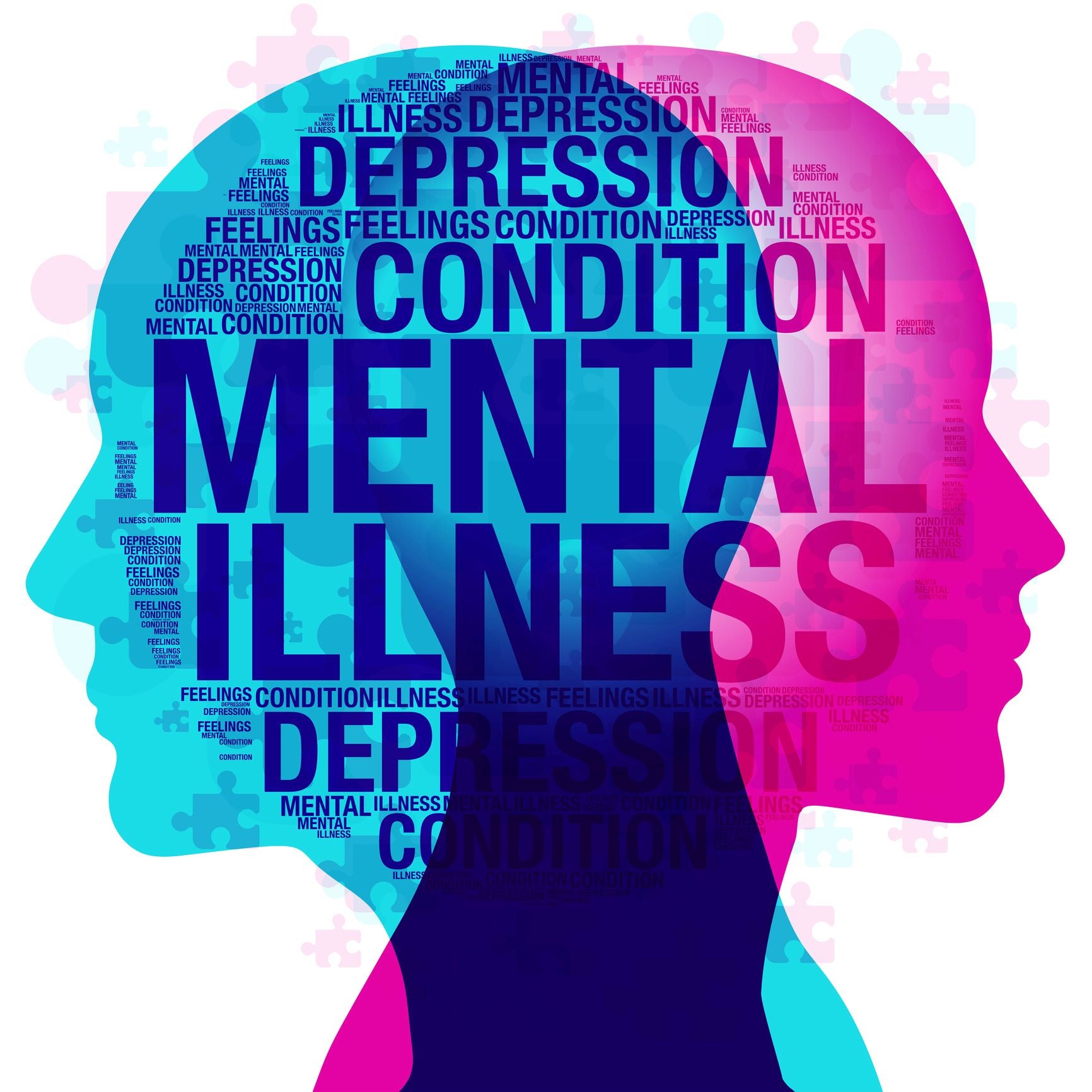Residential Mental Health Services Designed for Whole-Person Care
Residential Mental Health Services Designed for Whole-Person Care
Blog Article
Comprehensive Inpatient Mental Health And Wellness Services for Effective Therapy
Inpatient mental health services represent a crucial component of the medical care system, supplying a organized and intensive setting for people experiencing serious psychological distress. Discovering the subtleties of this continuum exposes significant effects for both private recovery and broader psychological health and wellness outcomes.
Recognizing Inpatient Mental Health And Wellness Services
Inpatient psychological wellness solutions offer critical assistance for individuals experiencing extreme mental distress that can not be managed properly in an outpatient setup. These services are designed to use an intensive degree of care in an organized atmosphere, often within a medical facility or specialized center. People admitted to inpatient programs generally present intense signs and symptoms, such as self-destructive ideation, extreme depression, or psychosis, demanding round-the-clock monitoring and treatment.
The admission process normally involves an extensive assessment by psychological wellness specialists, who review the individual's mindset, history, and instant demands. Once admitted, people engage in a range of healing modalities tailored to their certain needs, including medicine monitoring, individual therapy, and group sessions. This alternative approach aims to support the individual's problem, promote safety, and foster coping skills.
Inpatient psychological wellness solutions not just address immediate health worries yet additionally work as a bridge to ongoing care. By offering a controlled atmosphere, these services promote the development of treatment plans that can be continued in outpatient settings, therefore making sure a continuum of treatment and boosting lasting end results for people with intricate psychological wellness demands.
Trick Elements of Effective Therapy
Reliable therapy in inpatient psychological health and wellness solutions makes up a number of crucial elements that promote healing and stabilization. A thorough analysis is necessary to determine the individual's specific needs and obstacles. This analysis notifies the development of a tailored therapy plan, which acts as a roadmap for treatment.
An additional important element is the multidisciplinary team approach. Cooperation amongst psychiatrists, psycho therapists, registered nurses, and social workers makes certain that numerous point of views contribute to the person's treatment, improving the effectiveness of therapy. Evidence-based restorative modalities, such as cognitive-behavioral treatment (CBT) and dialectical habits treatment (DBT), are likewise essential, giving structured techniques that attend to maladaptive thought patterns and behavior problems.

Finally, an emphasis on aftercare preparation is crucial to ensure a smooth shift to outpatient solutions, lessening the risk of regression and promoting long-lasting wellness. These cumulative components develop an effective therapy framework within inpatient psychological health solutions.
Benefits of Comprehensive Treatment

Detailed treatment in inpatient psychological health services provides many advantages that significantly enhance client results. Among the key benefits is the holistic method to treatment, attending to not just the emotional signs and symptoms yet also the physical, social, and emotional needs of clients. This extensive analysis permits for customized treatments that advertise total health.
An additional advantage is the assimilation of multidisciplinary groups, which promotes partnership amongst health care experts. This collective atmosphere guarantees that clients receive coordinated care, reducing the threat of fragmented therapy and boosting interaction among caregivers. Furthermore, comprehensive treatment assists in connection of services, allowing for smooth shifts from inpatient to outpatient settings, which is essential for long-term recuperation.

Finally, the organized setting of extensive inpatient treatment offers a safe area for clients to take part in healing tasks, assisting them create coping methods and strength. Jointly, these benefits add to much more efficient treatment and improved lifestyle for individuals experiencing mental wellness situations.
Evidence-Based Restorative Methods
In the realm of psychological health and wellness treatment, evidence-based healing techniques play an important role in ensuring that people get effective and clinically supported treatments. These methods incorporate the very best available research study with medical knowledge and patient worths, fostering a customized treatment experience that attends to individual requirements.
Cognitive Behavior Treatment (CBT) is one of the most extensively recognized evidence-based methods, concentrating on recognizing and changing negative thought patterns and habits. This organized approach has demonstrated effectiveness in dealing with problems such as anxiousness, clinical depression, and ptsd. Dialectical Behavior Therapy (DBT) is particularly reliable for people with borderline individuality problem, stressing the growth of psychological guideline and interpersonal effectiveness skills.
Additionally, drug monitoring is usually an indispensable part of evidence-based therapy, as psychotropic medicines can minimize symptoms and improve total performance. Collective care models, which entail multidisciplinary groups, even more enhance the efficiency of inpatient solutions by guaranteeing extensive evaluations and continual tracking.
Ultimately, my response the integration of evidence-based healing methods not only advertises positive professional results but additionally equips clients, cultivating a sense of agency and durability in their mental wellness journeys.
Transitioning to Outpatient Assistance
The shift from inpatient psychological health and wellness services to outpatient assistance marks an important phase in a person's healing trip. This period calls for careful preparation and coordination to make certain continuity of treatment and to mitigate the dangers of regression or dilemma. Reliable discharge planning must commence early in the inpatient remain, entailing a multidisciplinary team that includes psychoanalysts, psychologists, nurses, and social employees.
Crucial element of an effective change consist of the development of a comprehensive aftercare strategy customized to the individual's details requirements. This plan should detail follow-up appointments, drug management, and restorative treatments, as well as recognize area sources and assistance groups that like this can assist in ongoing healing.
In addition, patient and household education and learning is essential throughout this phase. Understanding the indications of prospective troubles and the importance of adhering to treatment can equip individuals and their support group.
Normal follow-up and review of the outpatient strategy are essential to deal with progressing challenges. By fostering a collaborative connection between outpatient and inpatient providers, the chance of continual recuperation rises, inevitably boosting the person's lifestyle and lowering the threat of readmission.

Conclusion
In summary, thorough inpatient mental health and wellness solutions supply a vital structure for addressing serious emotional distress via a multidisciplinary approach. By integrating evidence-based therapies, promoting an organized setting, and advertising family involvement, these services improve treatment efficiency. The focus on security and the growth of dealing abilities not just help in prompt recovery but also helps with a smoother shift to outpatient care. Eventually, such detailed treatment is crucial for lasting psychological wellness and health.
The admission process typically involves a comprehensive assessment by psychological health and wellness experts, who evaluate the person's psychological state, history, and immediate demands.Efficient treatment in inpatient mental wellness services comprises numerous crucial elements that foster recuperation and stabilization.Comprehensive treatment in inpatient weblink mental health solutions provides numerous advantages that considerably enhance person results.The transition from inpatient psychological health solutions to outpatient support notes a vital phase in a person's recovery trip.In summary, thorough inpatient mental health services offer a crucial framework for resolving serious psychological distress with a multidisciplinary approach.
Report this page